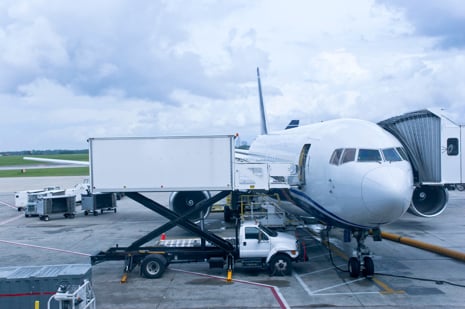
By Daniela Stange, Manager, Sustainability at IATA
It’s taken years of advocacy and regulatory engagement, but we’re very pleased to see a significant step forward in reform of the handling of International Catering Waste (ICW) in the EU. With the European Commission’s recent clarification of the scope of the Animal By-Products (ABP) legislation (Regulation (EC) No1069/2009), there is renewed hope for more sustainable waste management practices within aviation, particularly in the recycling and reuse of cabin waste not containing animal or animal derived products.
This latest development is promising but highlights that more needs to be done to achieve a truly sustainable and efficient system for managing waste generated during international flights. Let’s look at what the recent progress means and how smarter ICW regulations could pave the way for better ICW management.
After extensive dialogue with the European Commission, IATA received important clarifications from DG SANTE (Directorate-General for Health and Food Safety) regarding the scope of the ABP legislation. The Commission clarified that:
“Waste not containing rests of, nor contaminated with, products of animal origin (in this case animal by-products) and collected and stored separately from ICW at the means of transport operating internationally, fall out of the scope of the animal by-products rules.”
This clarification is a crucial step forward, as it opens the door for the aviation industry to better separate materials not containing animal products or derived products from other waste on board an aircraft. By doing so, airlines can reduce the overall volume of cabin waste and improve recycling and reuse efforts while maintaining stringent animal health controls.
While this clarification represents a positive development, it is important to note that ICW remains heavily regulated under Animal By-Products legislation (No. 1774/2002), which classifies it as Category 1 waste—the highest risk category. As a biohazardous waste, ICW is currently subject to strict control measures and is to be disposed of by burial in an authorized landfill. These regulations are designed to prevent the spread of animal diseases, but they also limit opportunities for further recycling and waste recovery.
Notably, other types of catering waste, such as food waste from households and the HORECA sector (hotels, restaurants, and catering), are classified as Category 3 waste and considered to pose a low risk. Food supplied on board is subject to strict food safety regulations. Yet, despite these safety standards, ICW continues to be treated as a higher-risk waste, necessitating stricter disposal methods.
This discrepancy raises an important question: if food from households and HORECA is deemed low-risk, why is airline food waste—which is produced under equally strict safety protocols—considered a higher threat to animal health?
To address this inconsistency, IATA is urging the European Commission to reclassify ICW as Category 3 material. This reclassification would allow for more sustainable treatment methods and disposal options, such as composting, rather than the costly and environmentally damaging practices of incineration and deep burial.
If immediate reclassification is not feasible, IATA strongly advocates for the Commission to conduct a quantitative risk assessment to evaluate the actual health risks posed by ICW to animal health. Such an assessment would provide the necessary scientific evidence to inform future regulatory decisions and could ultimately support the reclassification of ICW as a lower risk category.
The adoption of smarter regulations for ICW would yield a host of benefits:
At the same time, these smarter regulations would ensure that policymakers can continue to uphold the highest standards of animal health, safeguarding against potential disease transmission without unnecessarily burdening the aviation sector.